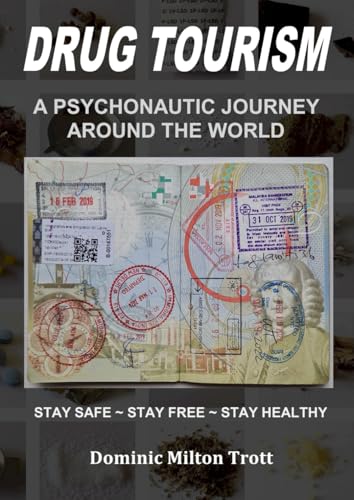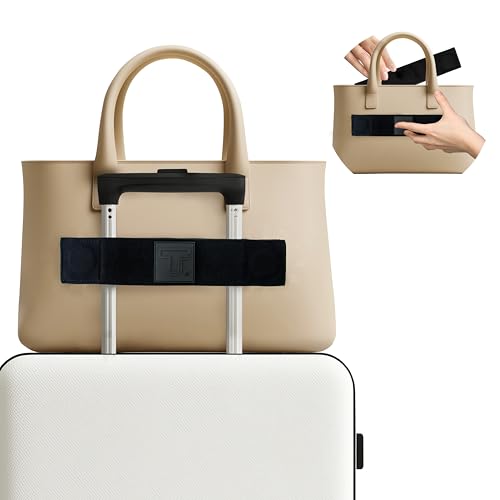

Do not stow THC-containing therapeutic cannabis in aircraft hold. Under federal law (see Schedule I classification in 21 U.S.C.), any product containing more than 0.3% delta‑9 THC remains a controlled substance for the purposes of air transport. Transporting such material on a plane–whether in checked or carry-on storage controlled by the carrier–exposes the person responsible to seizure, referral to law enforcement, fines and potential criminal charges.
TSA screening focuses on aviation security rather than drug enforcement, but agents will refer suspected illegal substances to local authorities. State-issued authorizations or physician recommendations do not override federal statutes or airline policies; interstate movement of THC-containing products is prohibited regardless of origin and destination being within compliant states. Domestic flights operate under federal jurisdiction, so possession that would be legal at departure may still trigger enforcement during the flight or at arrival.
International transport carries higher risk: most countries prohibit any THC-containing product, including formulations prescribed at home. Penalties abroad can include heavy fines, detention or imprisonment. For travel across borders, leave cannabis-derived products at home and procure treatment locally through regulated channels when available.
Practical alternatives and checklist: use hemp-derived CBD products verified to contain ≤0.3% delta‑9 THC and carry a current certificate of analysis and original labeling; confirm airline terms of carriage and the departure/arrival airport’s law enforcement stance in writing before travel; arrange for state-licensed dispensary access at the destination or mail-to-dispensary services where permitted. When in doubt, refrain from transporting any THC-containing product on aircraft; safer routes include telemedicine consultations, local sourcing, or prescribed non-THC medications.
Do not place state-authorized therapeutic cannabis products in baggage stored in the aircraft hold; federal law supersedes state rules and TSA will refer discoveries to law enforcement
Federal statute classifies all forms of cannabis as a Schedule I controlled substance under 21 U.S.C. §812; possession or transport on aircraft (including items placed in the aircraft hold) occurs within a federally regulated environment, creating exposure to seizure and possible federal prosecution regardless of state authorizations.
Federal framework and jurisdiction
Interstate air travel and airport operations fall under federal jurisdiction; the Controlled Substances Act applies across state lines and on federal property that many airport terminals and aircraft occupy. State-issued therapeutic cards or prescriptions have no force against federal criminal statutes when the item is on federally regulated transportation or federal land.
Penalties vary by quantity, intent (possession versus distribution), and prior record; outcomes range from seizure and administrative action to arrest and criminal charges handled by federal or local prosecutors assigned to the airport area.
TSA policy, operational practice, and practical recommendations
TSA’s mandate focuses on transportation security; TSA screening officers do not seek illegal drugs as primary targets, but discovered prohibited controlled substances are documented and referred to law enforcement. Screening methods include X-ray, explosive trace detection, and canine units; inspections of hold-stowed baggage are routine when suspicious indicators appear.
Practical steps to reduce legal risk: leave therapeutic cannabis products at home or obtain legal alternatives that meet the 2018 Farm Bill definition of hemp (delta‑9 THC below 0.3% by dry weight), confirm airline and destination-country rules before travel, avoid mailing across state or international borders unless federal and local law permit, and understand that possession documentation (medical cards, doctor’s notes) does not prevent enforcement.
For non-regulated travel gear recommendations, consider checking a travel guide or items such as best portabloe umbrellas.
How to verify airline, state and international rules before transporting therapeutic cannabis in hold baggage
Obtain written confirmation from the carrier before placing any patient-use cannabis product into hold baggage and retain screenshots, email printouts and the agent’s name/ID.
-
Airline verification
- Locate the carrier’s official policy page (search “prohibited items” or “controlled substances policy”); save the URL and a PDF copy.
- Call reservations or the airline operations desk and request a written statement that references the policy section; ask whether hemp-derived CBD and THC-containing products are permitted and for any quantity limits or container requirements.
- Request the agent’s name, employee ID and a dated email confirmation; print and keep that with travel documents.
-
Origin jurisdiction checks
- Download the state health department controlled-substances statute or guidance PDF that governs patient possession limits, permitted forms (flower, oil, edible), and registry requirements.
- Note exact legal limits (grams of flower, mg of THC in products) and whether out-of-state registry cards are accepted; save statute citations (e.g., line/section numbers) for proof.
- Carry original registry card, prescribing documentation, purchase receipt, and product labels showing batch number and potency.
-
Destination jurisdiction checks
- Confirm whether the destination state or municipality accepts out-of-state patient registrations and check local airport ordinances.
- Verify possession limits and any prohibited forms; if destination disallows THC, plan alternatives instead of transport.
-
International travel rules
- Consult the destination country’s narcotics control agency and embassy/consulate website for rules on importation of THC- or CBD-containing products; most countries prohibit THC entirely.
- Contact the embassy for written guidance on whether a medical import permit or special authorization exists; obtain any documentation before travel.
- Check transit-country laws for flights with layovers; a route passing through a strict jurisdiction can create legal exposure during transfer.
-
Documentation checklist to verify and carry
- Government photo ID matching the patient registry.
- Original patient registry card or signed medical recommendation/prescription.
- Product labels showing THC/CBD content, batch number, and manufacturer.
- Certificate of analysis (COA) from a certified lab where available.
- Purchase receipt with dispensary name and date.
- Written airline confirmation and saved policy screenshots or PDFs.
- Translated copies of key documents when traveling internationally.
-
When further advice is needed
- Request written guidance from the airline’s legal or operations department for ambiguous cases.
- Engage counsel familiar with health and export/import law for high-value shipments or quantities exceeding typical patient limits.
- Consider arranging lawfully obtained care or prescriptions at the destination rather than transport across borders.
-
Recordkeeping and day-of-travel measures
- Save all correspondence, statute pages, and COAs in both digital and printed formats; keep copies in the carry-on hold accessible during check-in.
- Photograph packaging and documentation with timestamps; present documentation proactively at check-in or when requested.
Key public sources to consult
- Airline official policy pages and Contract of Carriage.
- State health department or controlled-substances statutes (PDFs or official code sections).
- Embassy/consulate narcotics control guidance for international destinations.
- Dispensary COA and manufacturer labeling.
Essential questions to ask an airline representative
- Is THC- or CBD-containing product allowed in hold baggage on this flight and under what limits?
- Which documentation satisfies the carrier at airport check-in?
- Are transit airports with different national rules considered during routing, and will that affect acceptance?
- Can the airline provide written confirmation referencing its policy and the agent’s credentials?
Required documentation, labeling and packaging to present at check-in and security for hold baggage
Present the original prescription, a signed clinician letter, state registry card and government photo ID at airline check-in and at security screening.
Documents to present
Keep three physical sets and one encrypted digital copy (PDF) ready: 1) original prescription with prescriber name, license number, date issued, and clear product name and dose; 2) clinician letter on office letterhead that states patient full name, DOB, clinical indication, recommended product form, daily dose and amount required for travel dates; include prescriber contact phone/email and medical license number; 3) state-issued registry/medical card or program ID; 4) government photo ID (passport or driver’s license). Attach any airline approval emails or written permissions from airport authorities.
Include a current lab Certificate of Analysis (COA) showing cannabinoid potency and batch number when available; many carriers and inspectors accept COA as proof of content if original retail labeling is missing.
Labeling, packaging and presentation at checkpoints
Keep product in the original manufacturer-sealed container or pharmacy-style labeled vial showing patient name (if dispensed), product name, batch/lot number, potency (mg or % THC/CBD) and total quantity or weight. If original container unavailable, place product and COA in a tamper-evident, transparent resealable bag with a printed label (patient name, product name, total weight) affixed to the bag.
Limit amounts to within the jurisdictional possession cap (example references: California ≈28 g flower; concentrated extracts ≈8 g). Store flower by weight in grams; concentrates and edibles labeled by total mg THC. For oils/edibles, place in sealed leakproof containers with absorbent padding and secondary rigid enclosure inside the hold bag to prevent damage and odor release.
At check-in, present the documentation packet separately from the hold-bag contents so airline staff can inspect paperwork without opening containers. If security requests inspection, present original container, COA and clinician letter together; request that any manual search be witnessed and that chain-of-custody be documented in writing if an item is confiscated.
For international itineraries, add export/import permits and translations of clinician letter into destination-language; the lack of explicit permits commonly results in seizure or prosecution. For unrelated travel-equipment references, see best cylinder mower striped lawns.
Penalties, delays and seizure risks if therapeutic cannabis is found in hold baggage
Avoid placing prescription cannabinoids in airline hold baggage: discovery typically leads to immediate seizure, referral to law enforcement, and a range of penalties from citations to arrest.
Typical on‑site sequence: screening or baggage inspection triggers notification to airport police; hold items are removed for examination; passenger and accompanying parties undergo secondary interview; bag remains in police custody as potential evidence. Immediate delay intervals commonly range from 30 minutes for a simple report to several hours for on‑site interviewing and paperwork; arrests or extended investigations may produce multi‑day or indefinite travel interruptions.
U.S. federal exposure: possession of a Schedule I substance is prosecutable under federal statutes; simple possession offenses carry possible imprisonment (statutory maximum about one year) and fines. Larger quantities or evidence suggesting distribution markedly increase penalties into multi‑year federal prison terms and large monetary penalties under trafficking statutes.
State-level outcomes differ widely. In jurisdictions where unauthorized cannabinoid possession remains illegal, consequences may include misdemeanor charges, fines (hundreds to several thousand dollars), short custodial sentences, or felony upgrades when quantity or intent to distribute is alleged. Civil asset forfeiture of the bag and contents is a realistic possibility where local statutes allow it.
International travel risk is substantially higher. Many countries enforce zero‑tolerance policies with penalties from heavy fines and imprisonment to deportation and visa cancellation; several jurisdictions (e.g., Singapore, some Middle Eastern states) impose mandatory long custodial terms and corporal or capital penalties for trafficking‑level amounts. Entry/exit denial at border control is frequent when narcotics are detected in hold items.
Administrative and collateral consequences: airlines may refuse carriage or blacklist the traveler; connections and onward itineraries may be lost; travel insurance claims related to seized substances are typically denied; future visa or immigration applications can be adversely affected by drug‑related records. Legal fees, storage and evidence handling costs, and time lost should be factored into risk assessment.
If law enforcement is present, limit statements to basic identification, request legal counsel before answering detailed questions, and note that returning seized property often requires court action or formal release by the prosecuting authority. Preservation of prescription records and physician letters can assist in post‑seizure proceedings, but possession of documentation does not prevent immediate seizure or arrest where federal or local law is controlling.
Risk mitigation options include avoiding transportation through jurisdictions with strict enforcement, using freight or courier routes that comply with specific local laws where permitted, or obtaining advance written approvals from relevant authorities when available; absent explicit legal authorization, expect high likelihood of seizure and significant administrative, criminal and immigration consequences.







